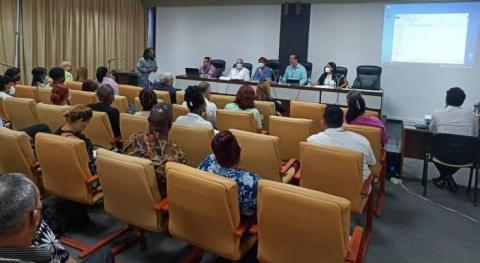
Within the spectrum of diseases that affect Cuba, dengue and COVID-19 are currently the greatest epidemiological threats to the nation. At the meeting of the Parliament's Permanent Commission on Health and Sports, Dr. Carilda Peña, Deputy Minister of Public Health, when updating on the country's epidemiological situation, reiterated the impact of dengue, a pathology that considerably increased its incidence in June.
While in April and May there was an incidence of 12.2 and 11.8 per 100,000 inhabitants, respectively, in June it increased to 46.3 per 100,000 inhabitants, with 3,306 reported cases.
Regarding COVID-19, the Vice Minister warned that, although sustained control over the pandemic is maintained, the circulation of the BA.5 variant has caused a slight growth in positives, without repercussion on serious and critical cases.
As for other ailments that impact the population of the Island, the directive referred to acute diarrheal diseases. In 2022, he said, 28,670 more medical attentions will be received than the previous year, while all the provinces increase the rate. Currently, he said, the country remains free of cholera.
Regarding STIs/HIV/AIDS, he reported that 37,864 people have contracted HIV infection since 1986, of which 6,240 (16.5%) have died from related diseases, while 30,423 (80.35%) %) people were living with HIV in Cuba, at the end of 2021.
The Health and Sports Commission also analyzed the results of the verification of Pharmacy and Optical Companies that presented losses.
As disclosed in the report, the economic activity of these entities, at the end of 2021 and so far in 2022, has been fundamentally characterized by the deterioration of their economic indicators, the main obstacle being the United States blockade, the country's foreign exchange deficit and the incidence of high world market prices in the import of raw materials and inputs associated with the production of medicines, the activity of opticians and hearing centers.

Leave your comment